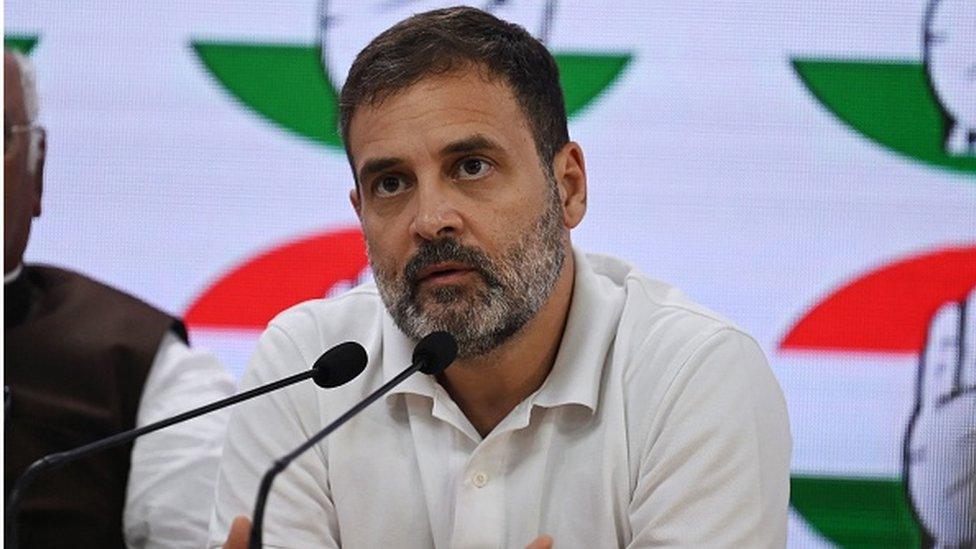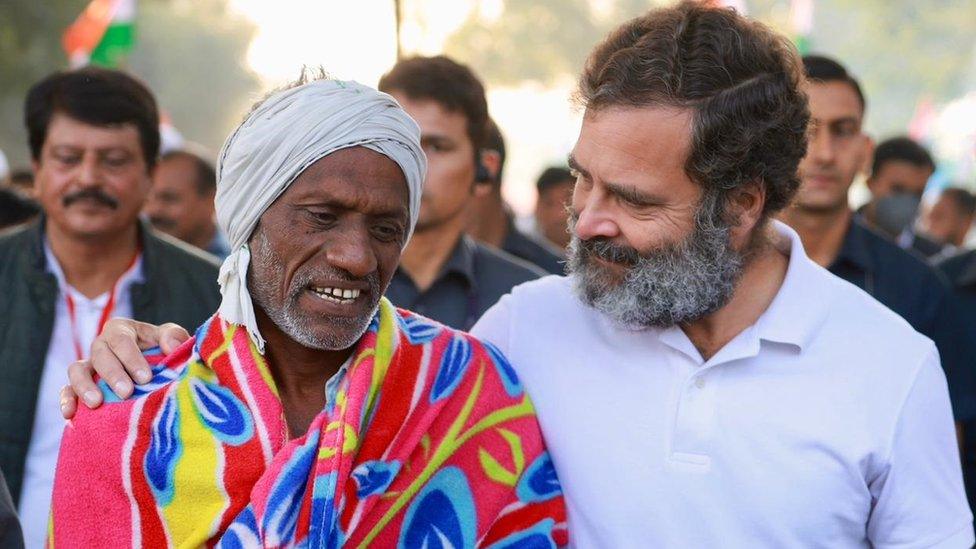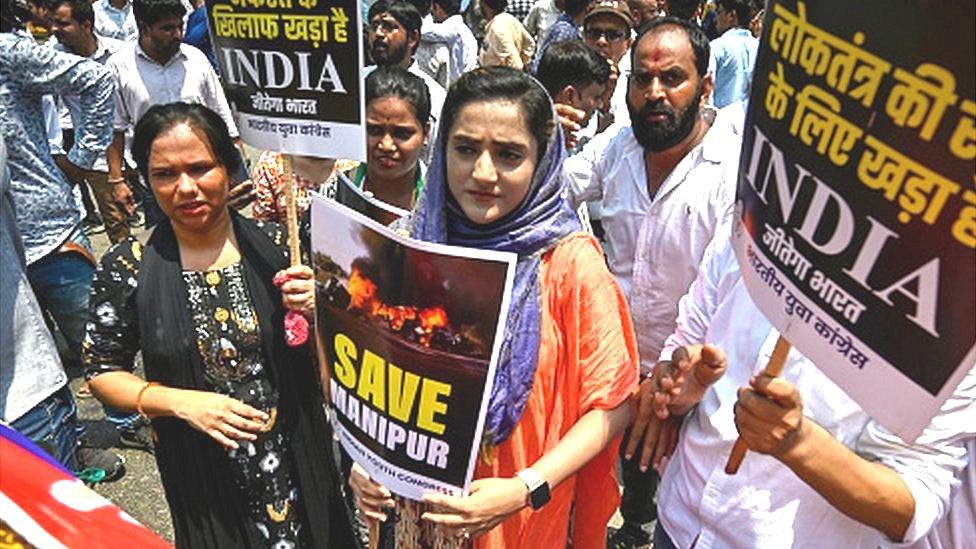Rahul Gandhi: Congress MP blames Indian PM Modi for Manipur crisis
- Published

The Congress party leader accused the government of "killing India"
Indian opposition leader Rahul Gandhi has accused Prime Minister Narendra Modi of "murdering Mother India" in violence-hit Manipur state.
"They killed India in Manipur. Their politics killed India in Manipur," Mr Gandhi said in parliament amid uproar from the ruling Bharatiya Janata Party.
He was speaking during a no-confidence motion debate that the opposition have brought against Mr Modi's government.
A vote is due on the motion on Thursday after the debate ends.
Mr Modi's government won't lose the vote as his Bharatiya Janata Party (BJP) and its allies have a majority in parliament.
But opposition leaders say the debate will force Mr Modi to speak on the ongoing ethnic clashes in Manipur state.
More than 150 people have died and tens of thousands have been displaced in Manipur since early May, when ethnic clashes broke out between the majority Meitei group and the tribal Kuki minority. Mr Modi only publicly addressed the violence weeks later, after a video that showed two women being paraded naked by a mob sparked global outrage.
Speaking in the house, Mr Gandhi said that for Mr Modi, Manipur was not important. "Our prime minister did not go to the state because for him, Manipur is not a part of India."
The Congress party leader added, "They killed India in Manipur. Their politics has not just killed Manipur, but it has killed India in Manipur. They have murdered India in Manipur."
Mr Gandhi's comments sparked protests from BJP leaders who accused him of trivialising India's name.
"You are not India, for India is not corrupt. India believes in merit, not in dynasty," BJP MP and federal minister Smriti Irani said. The comment was a reference to the Nehru-Gandhi family, one of India's most renowned political dynasties, that ruled India for much of its history since independence in 1947.
Mr Gandhi's speech came days after he returned to parliament for the first time since he was convicted in a criminal defamation case.
He had lost his lawmaker status in March after he was sentenced to two years in jail. He was reinstated as MP on Monday, two days after the Supreme Court suspended his conviction.
On Monday, he visited the parliament building after paying respects to the statue of Mahatma Gandhi in the complex where he was welcomed by opposition leaders.
The parliament session, which began on 20 July, has been marked by protests from opposition leaders who have demanded that Mr Modi address the house on the violence in Manipur.
This is the second time that Mr Modi's government is facing a no-confidence motion since it came to power in 2014. In 2018, a lawmaker had moved a motion over the issue of granting a special category status to Andhra Pradesh state. It was defeated after a 12-hour debate.
The ongoing no-confidence debate is also a chance for a newly-formed opposition alliance of 26 parties - called INDIA - to display their unity. The alliance, which was formed in July - aims to take on Mr Modi's BJP in the general elections next year.
BBC News India is now on YouTube. Click here, external to subscribe and watch our documentaries, explainers and features.

Read more India stories from the BBC:

Related topics
- Published25 November 2022

- Published21 July 2023
